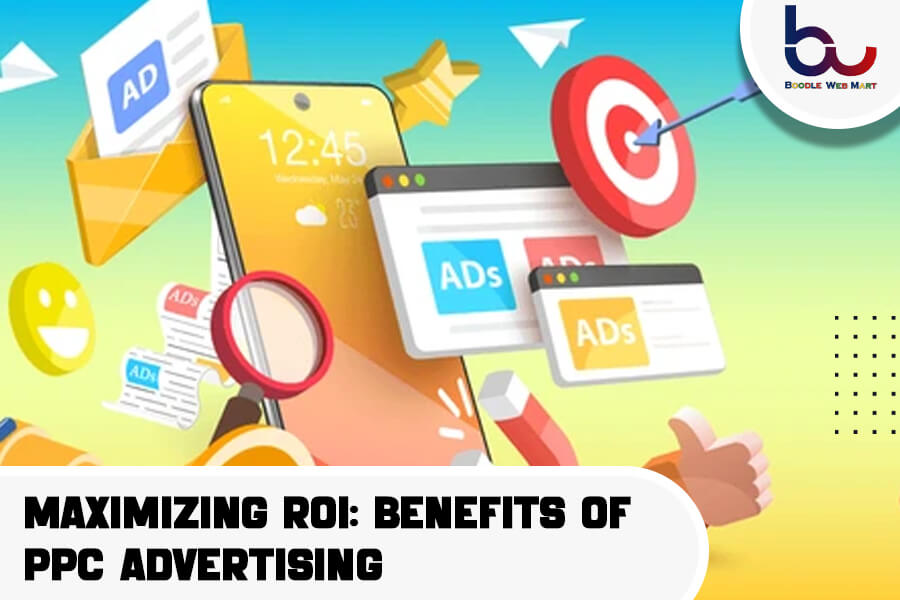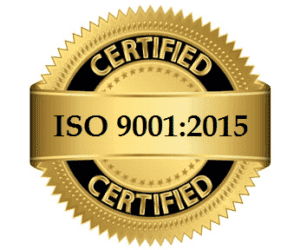Maximizing ROI: Benefits of PPC Advertising

Companies constantly search for the best marketing strategies in the fast-changing digital market. Pay-per-click (PPC) advertising is one of the most well-known tactics that has become rather important. Under this approach, the advertiser pays just when users click on his ads and can reach audiences for his commercials. With getting a maximum ROI as the only reward, a company can achieve tremendous growth by availing the peculiar benefits that PPC has. Let’s dive into the various benefits associated with this advertising strategy.
Understanding PPC Advertising
Pay-per-click advertising is an online marketing strategy whereby companies bid on ad placements on other websites, social media platforms, and search engines. After selecting pertinent, targeted keywords for their company, advertisers will create convincing ads to draw in possible consumers; then, ads show up when targeted people search for those keywords and advertisers just pay when users click on their advertisement. In that way, businesses can reach active customers who are seeking their products or services very quickly.
Instant Impact on Marketing Efforts
The most attractive feature of PPC advertising is that it shows its results immediately. Unlike other channels whose effects may be witnessed after weeks or months, PPC can bring traffic and leads almost overnight. As long as the ad goes live, you begin to receive clicks and potential customers. This immediately means that you can capitalize on seasonal trends and timely promotions.
Effective delivery of Advertisements with Precision Targeting
PPC advertising provides some of the most highly accurate ways of delivering advertisements to any target audience. It means that there is a clearly defined demography, geography, interests, and online activities in the audience. Such a campaign ensures that this is the audience that could respond to any content. The probability of conversion will be increased. Others, such as Google Ads and Facebook Ads, provide much more granular options for targeting, which allows businesses to push the segmentation of their audience even deeper and possibly get more effective results.
Ability to Control Budget Flexible
One of the difficulties in dealing with a marketing budget is that PPC advertising affords no other source unmatched control over money spent. Daily or monthly budgets for advertisers ensure that they never go over their financial capabilities while the funds are being used. It therefore allows any-sized business to participate in PPC advertising, at least on budgetary requirements. More than that, real-time adjustments are possible based on the performance during the campaign because a budget can be allocated more to high-performing ads and paused for underperforming ones.
In-depth Analytics and Performance Monitoring
Another major strength of PPC advertising is that it is capable of being effectively measured and tracked. Business houses can have more detail on analytics, which enables them to understand the performance campaigns in greater detail. KPIs like CTR, conversion rates, and CPC can be monitored online. The data helps business houses make decisions correctly to optimize campaigns for better results. Through this analysis of what works and doesn’t work, companies can continue to hone their strategies for maximum efficiency.
High Return on Investment Potential
If done correctly, PPC advertising should produce a superior return on investment. The ability to focus in on an audience, combined with the immediacy and tracking of it, is assured to help businesses receive their highest return from an advertisement. Most advertisers note achieving a higher ROI through PPC advertising than they do through traditional advertising methods. And if implemented appropriately, targeted PPC advertising can cause business growth and revenue to skyrocket.
More than just driving traffic and conversion, PPC advertising helps enhance brand visibility. Even if the users may not click on those advertisements, their presence in search results and across social media websites aids in developing brand recognition. Increased awareness and trust in the brand can translate into higher chances of selecting your business when they are ready to make the purchase. The more users know a brand, the chances are high that they will be open to communication with it in the future.
Remarketing Strategies
PPC offers great opportunities in remarketing through which a business can regain touch with users who at one time interacted with the websites or ads. This way, they can display these users targeted ads on other websites or social media sites when browsing, reminding them about the products or services that were in consideration.
Remarking can be a very effective way of boosting conversions if executed correctly since it targets people who are already aware of your brand, thus increasing the chances of conversion considerably.
Fighting for Attention in Your Niche
An important benefit of pay-per-click ads is that it identifies which types of competitor audiences exist in highly competitive industries. In this sense, advertisers can put together ads that can be more targeted at a user who is searching for a competing product or service. For example, businesses may bid on brand names or keywords competitive with theirs so that they might begin to capture potential customers who are looking for an option. This generates traffic and puts the business in the minds of consumers as an alternative.
Continuous optimization and A/B testing
A good PPC ad requires constant testing and optimization. This process will ensure the advertiser has variations of the ad copy, the visual presentation, and targeting options for the campaign that can be best used. A/B testing allows the business to compare ads side by side and allows it to refine the approach based on actual real-world data. Because a campaign is subject to change based on consumer preferences, constant optimization will make sure that a PPC ad campaign remains effective and in tune with preference.
Customization and Ad Extensions
Several choices in PPC advertising channels allow businesses to tailor their ads to suit a client’s needs. The advertiser can come up with catchy copy, use clear images, and use ad extensions that provide additional information. Some extensions are site links, a call button, and location, which not only make an ad more visible but also increase the chances that users engage with it. Such depth of personalization is what makes firms stand out from the rest in the marketplace and get more clicks.
Conclusion
In the digital marketing world, the fast internet rhythm has given birth to Pay-Per-Click advertising as a mighty force in line with maximizing ROI. With instant results, focused accuracy about the target, and very minutely detailed analytic data, PPC boasts hundreds of conveniences for businesses seeking to make their marketing efforts better. Through the abilities specific to PPC advertising, companies can drive traffic towards themselves as well as increase brand visibility to eventually attain their growth objectives. In such a competitive landscape, most companies have found the investment in PPC to be not just a strategy but a necessity for thriving in this age.
Author Bio
Content written on behalf of BoodleMart
Do you want
more traffic?
At Boodle Web Mart we are determined to make a business grow. My only question is,
will it be yours?
Our Guides
Do you want
more traffic?
At Boodle Web Mart we are determined to make a business grow. My only question is,
will it be yours?







